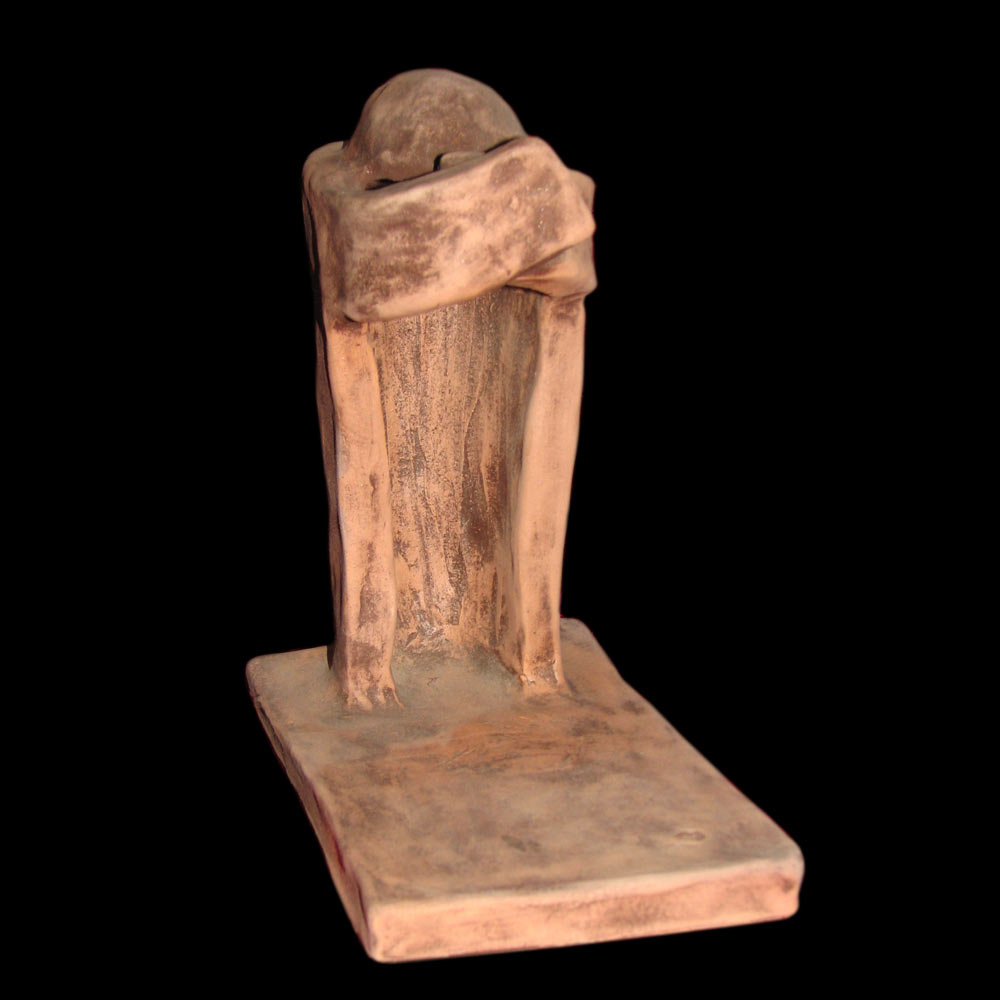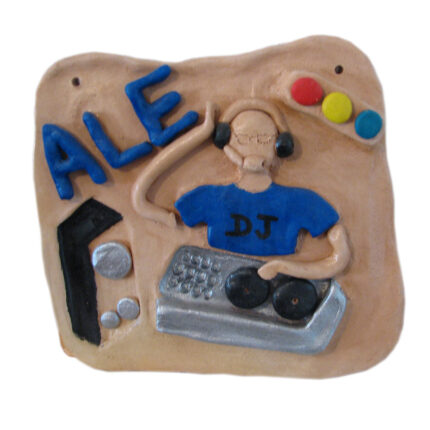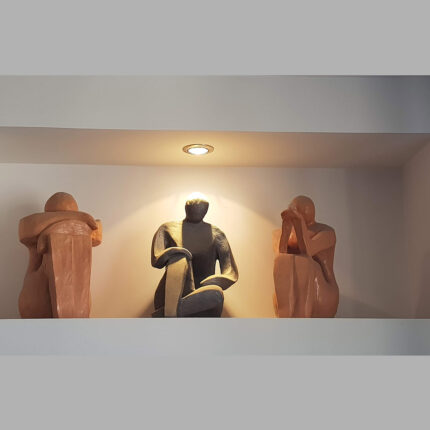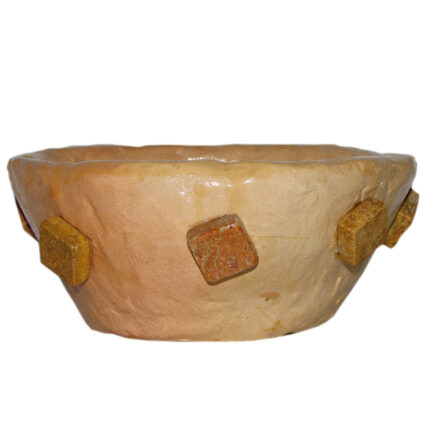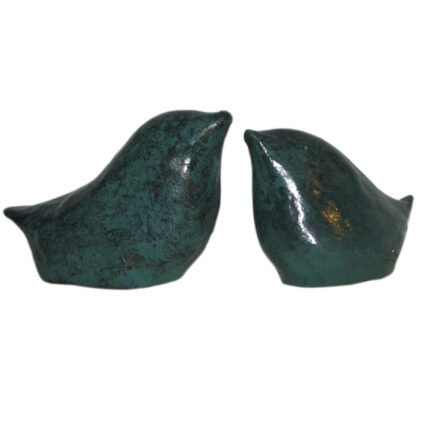011 Sculpture “Moses and the Burning Bush”
₪ 400.00
- Specifications
- Name: Moses and the Burning Bush
- Size (cm):
- Material: Clay
- Color: Brown
The product pictures we show are taken from real in our gallery. Since it is handmade piece, we can not confirm it is 100% as the pictures show when you get what you order. And color of pictures may vary by different monitor setting.
IN STOCK
Description
“Unleash the beauty of handcrafted art with this stunning clay sculpture. Every curve and detail is lovingly shaped by hand, making each piece truly one-of-a-kind. Embrace the timeless elegance of this unique creation, perfect for adding a touch of artistry to any space. Bring home a piece of sculptural excellence and let its captivating presence elevate your surroundings.”
Handmade objects carry a certain value due to their uniqueness and the craftsmanship involved in their creation.
Creating a clay sculpture is a fascinating process that involves several stages of creativity and skill. Here’s a step-by-step explanation of the process:
- Inspiration and Conceptualization: The process begins with an idea or inspiration for the sculpture. This could be a specific concept, emotion, or subject matter. The artist may sketch out the initial concept to visualize the form and composition of the sculpture.
- Armature Building: Once the concept is clear, the artist creates an armature, which acts as the internal support structure for the sculpture. This armature can be made from materials like wire, wood, or even aluminum foil, depending on the size and complexity of the sculpture.
- Clay Selection: The artist selects the type of clay based on their preference and the requirements of the sculpture. There are different types of clay, such as oil-based clay, water-based clay (earthenware, stoneware, or porcelain), and polymer clay, each with its own unique properties.
-
Building the Form: The artist begins adding the clay onto the armature, gradually building up the form of the sculpture. This process involves shaping, molding, and refining the clay to achieve the desired contours and details.
-
Refinement and Detailing: As the basic form takes shape, the artist focuses on refining the details, textures, and surface qualities of the sculpture. This may involve using various sculpting tools to carve, smooth, and add intricate features.
-
Drying and Firing: Once the sculpture is complete, the clay needs to dry thoroughly before firing. Depending on the type of clay used, the artist may air dry the sculpture or use a kiln for firing. Firing the sculpture transforms the clay into a permanent, durable form.
-
Finishing and Presentation: After firing, the artist may apply additional finishes such as glazes, paints, or patinas to enhance the appearance of the sculpture. Finally, the completed sculpture is ready for display, whether it’s in a gallery, exhibition, or a private collection.
